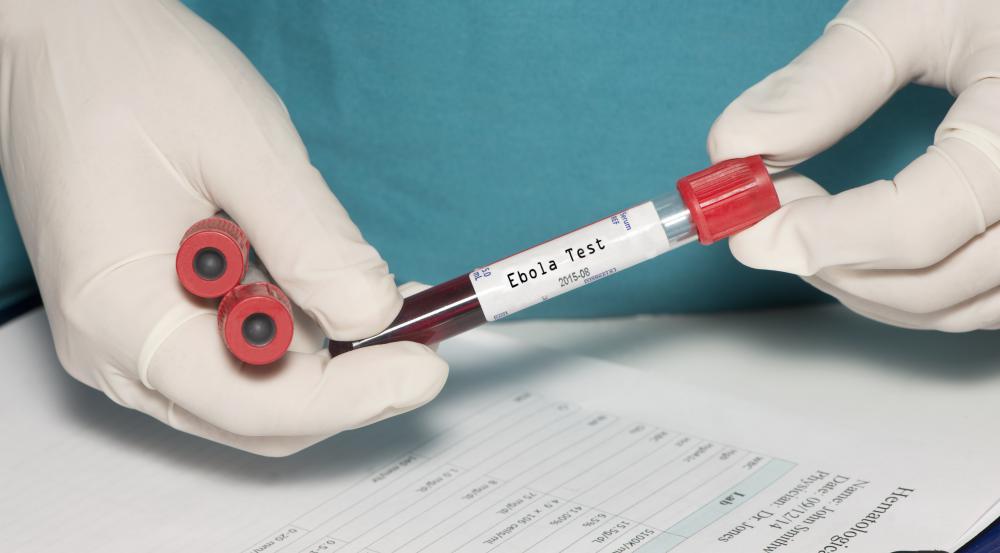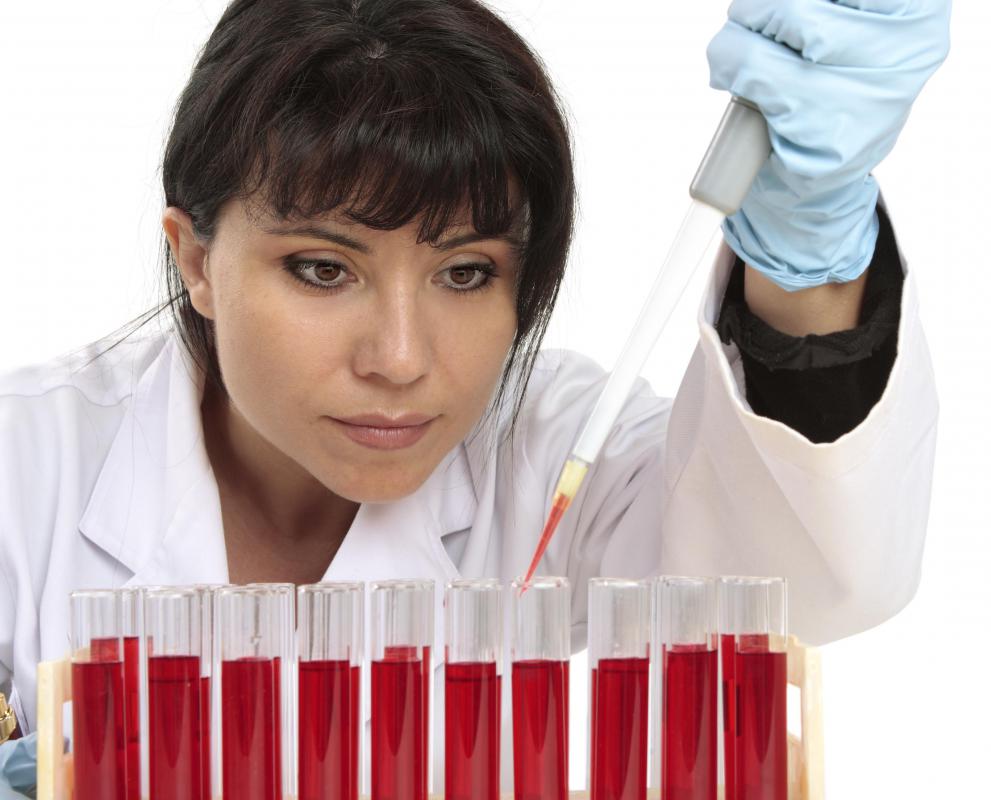At WiseGEEK, we're committed to delivering accurate, trustworthy information. Our expert-authored content is rigorously fact-checked and sourced from credible authorities. Discover how we uphold the highest standards in providing you with reliable knowledge.
What is Antiserum?
Antiserum is a product derived from blood which can be used to activate the immune system of someone who has been exposed to a pathogen or toxin so that the immune system can eliminate it. Antisera are used when other treatments are not available, or as one line of defense in a treatment plan, depending on the specifics of the situation. Numerous companies manufacture antisera for medical and research use, and the most common application of antisera is as antivenin products used to treat exposure to poisonous snakes and other poisonous animals.
The antiserum consists of blood serum, a form of purified blood plasma which is loaded with polyclonal antibodies produced by the host organism. Polyclonal antibodies are clones of parent cells which have produced antibodies to one or more antigens. When the antibodies enter the body of the patient, they latch on to the antigens they recognize and the immune system sees them so that it can attack. Essentially, the antiserum acts like a flag, latching on to antigens and tagging them so that they can be seen by the immune system.

Several toxins and pathogens rely on attacking while the immune system is left dormant. They are comparatively weak, and when the immune system wakes up with an infusion of antiserum, it can eliminate the hostile invaders. Sources for antiserum vary, depending on what kind of pathogen or toxin someone has been exposed to.
One source is a human being who managed to survive the infection or venomous attack. For example, with Ebola, a dangerous disease which resists all other forms of treatment, antisera purified from the blood of a few lucky survivors has been used to successfully treat people who have been exposed to the disease. Antibodies derived from human survivors are sometimes used in the early stages of epidemics, while researchers are still identifying the disease and developing an approach to treatment.

Commercially, antisera can be produced from animals which carry the infection, but don't get sick, or from animals which are exposed to small quantities of the pathogen over time. These exposures give the immune system of the animal time to respond and develop antibodies, and blood can be drawn and processed to develop an antiserum. Antisera can be short lived, and may be quite costly because of the amount of work involved in production, so they are usually kept stocked in major medical centers only, with smaller hospitals and clinics making requests when they need specific antisera.
AS FEATURED ON:
AS FEATURED ON:















Discussion Comments
Is it ever possible for an antiserum to have the reverse effect that was intended? For example, if you got bit by a poisonous snake and made it to the hospital, they might give you the antiserum. Is there a chance that the antiserum would actually worsen the problem since it is putting a little bit more of the venom into your body?
Also, what would happen if you weren't bitten by the snake, but you still received the antiserum? I think this is kind of how vaccines work, but I'm curious if an antiserum is a little different.
@JimmyT - The plasma they get from donation centers is the exact thing they use for vaccines and antiserums. I used to donate plasma a few years ago, and they gave you a lot of information about what it was used for, and that is the number one use if I remember right.
That is part of why plasma donors are paid, because there is a big time commitment and vaccines are so indemand that there wouldn't be enough if people didn't get paid.
Plasma doesn't follow the same ABO system like blood does, so there isn't the same risk of someone else's body rejecting it. Plasma is the water portion of the blood.
If anyone knows more about this, I would be interested in learning more about how antiserum is made.
@matthewc23 - I'm not an expert, but from the way this article describes it, tetanus shots seems like they would have to come from an antiserum. I think tetanus shots work the same way, by introducing the pathogen to the body so that your white blood cells can identify the problem and eliminate it as soon as possible.
I would guess the same rules would apply for most other shots. Rabies is another that I can think of. I'm sure there are others that I can't come up with right now.
When they make the antiserum, what exactly is the process. The article mentions using blood plasma. Is this the same stuff they get from plasma donation centers? I was never sure what it was used for, but maybe this is the answer. How do they make sure the plasma doesn't react negatively with someone's body?
Can antiserums only be used to help fight toxins from animals, or can it be used for other things, too?
Something specifically I was thinking of was a tetanus antiserum. I know that if you get cut by a piece of metal, you are at risk of tetanus, and the doctors can give you a shot to try to fight it. Would this be considered an antiserum?
You can also get vaccinations for tetanus, so how does that work? Are antiserums only for immediate treatment of a pathogen, or can they be used for longterm vaccines, too?
Post your comments